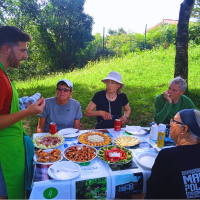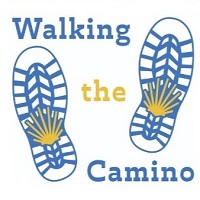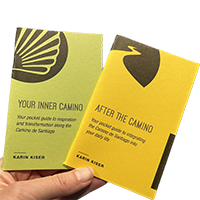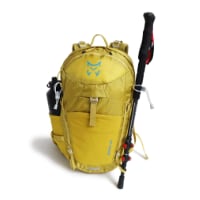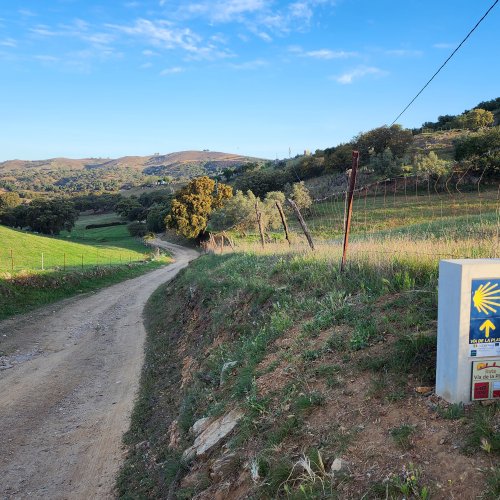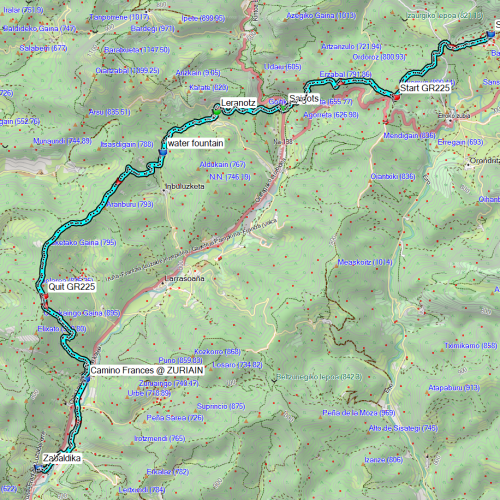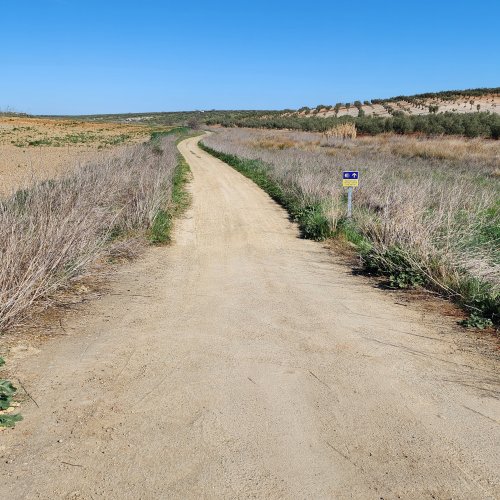My memory of why I carried on way back in the year five, my first Camino, was anger. I had a motorcycle accident when very young and still have a duff knee. I walked from Moissac to Logrono (or rather, some miles before Logrono) and the knee finally gave out (I didn't know about McDavid hinged knee braces then!). Worse, it made me so unstable in the pain that I fell and twisted my ankle on the same leg.
There was a stream, so after a while of doing and saying all the things we do when hurt I put my foot into it, way past the ankle - was so cold but I held it there for some while, then laced my boots back on super-tight (I wore boots back then). I stood and walked slowly but normally - (first aid tip - when hurt always walk normally!) and stayed overnight, then the next day I went to Decathlon and bought the cheapest klunker of a bicycle they had. Woman's frame, heavy, I had a rack put on it, went back and booked another night in another refugio and next day strapped my pack onto the bike and carried on westwards.
The anger? I had walked halfway, some 320 miles, and I wasn't going to let a duff knee stop me from getting to Santiago. NOTHING would stop me getting to the cathedral. I had worked out that with a bike my knee would move only in two dimensions and I could cope with that, it was the three dimension swivelling that brought the trauma.
I am almost ashamed to write this but I did not pray to God for help, or to ask why, or even to complain! I was filled with adrenaline and, honestly, anger (not at anyone else but at me and
my failure and at
my frail and damaged body) - I had made no promises to anyone, so no expectations, no prayers to carry with me - and so I cycled, and each day I improved, and I became lonely as on a bicycle you never ever meet the same pilgrims ever again - except sometimes other cyclists and back then they were all crazy adrenaline junkies - and some 320 miles later I arrived in Santiago and went to get my Compostela, all strong and brave and successful in having completed regardless of the odds and also rather opinionated and then was gently and softly asked "
and why did you travel the Camino?" and to my utter utter surprise I fell into floods of tears, deep deep tears .... and my eyes were opened, like a dark veil being removed .. and I surrendered, and I was hooked, utterly utterly hooked.
So my story - you may call it stubbornness, or dedication, or someone else in control, but to me at the time (until the pilgrim's office) it felt like anger.
So my reasons.



